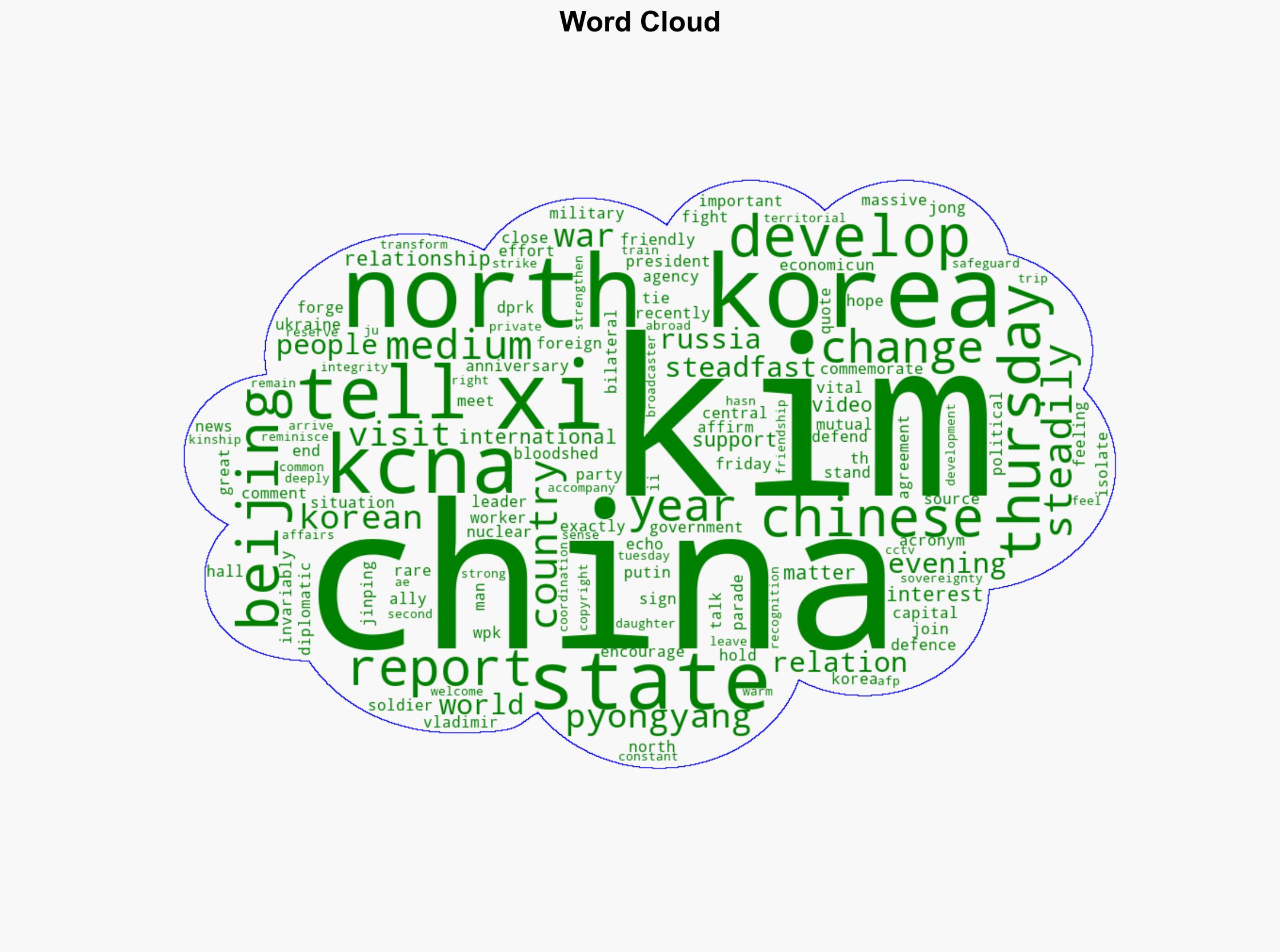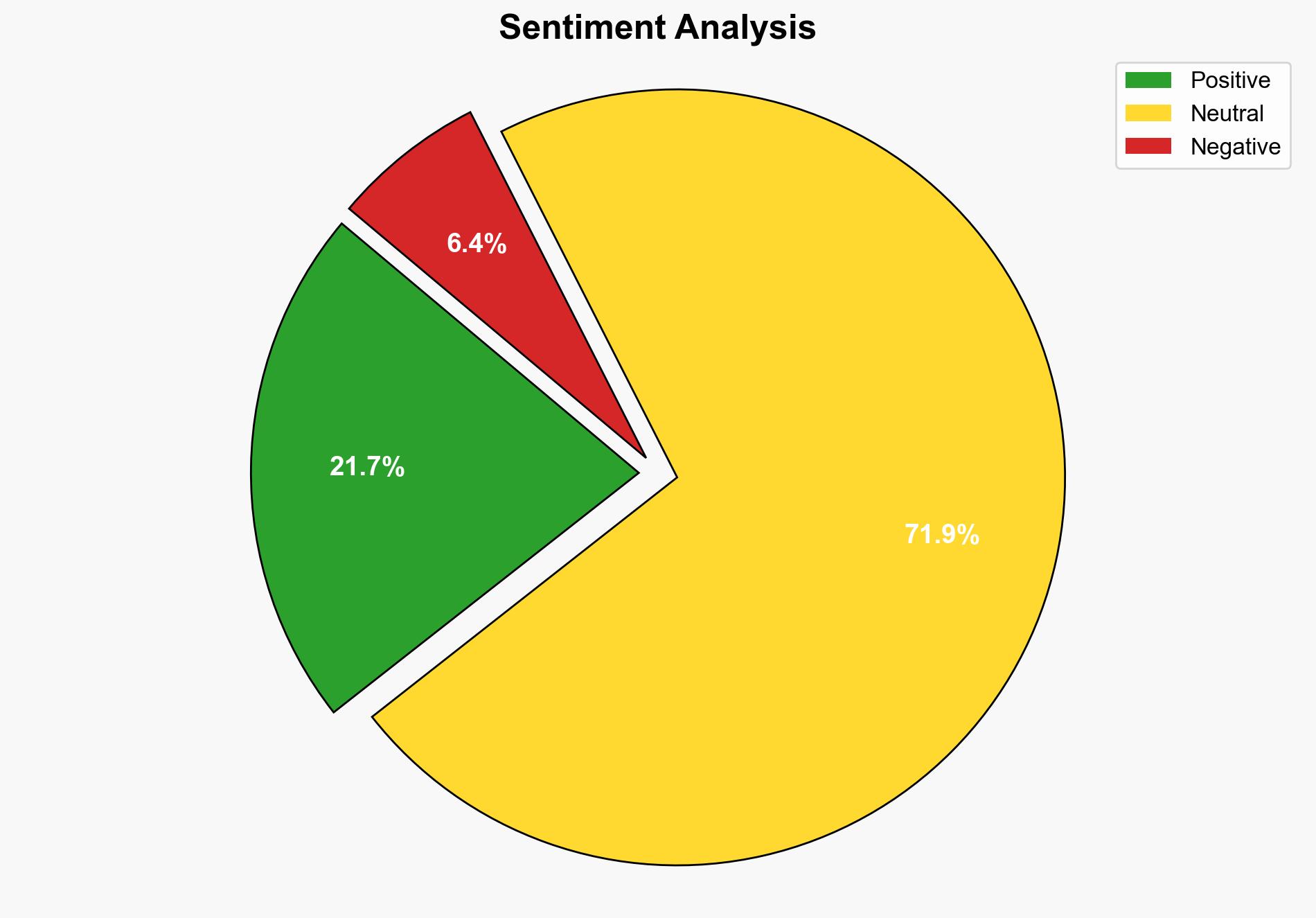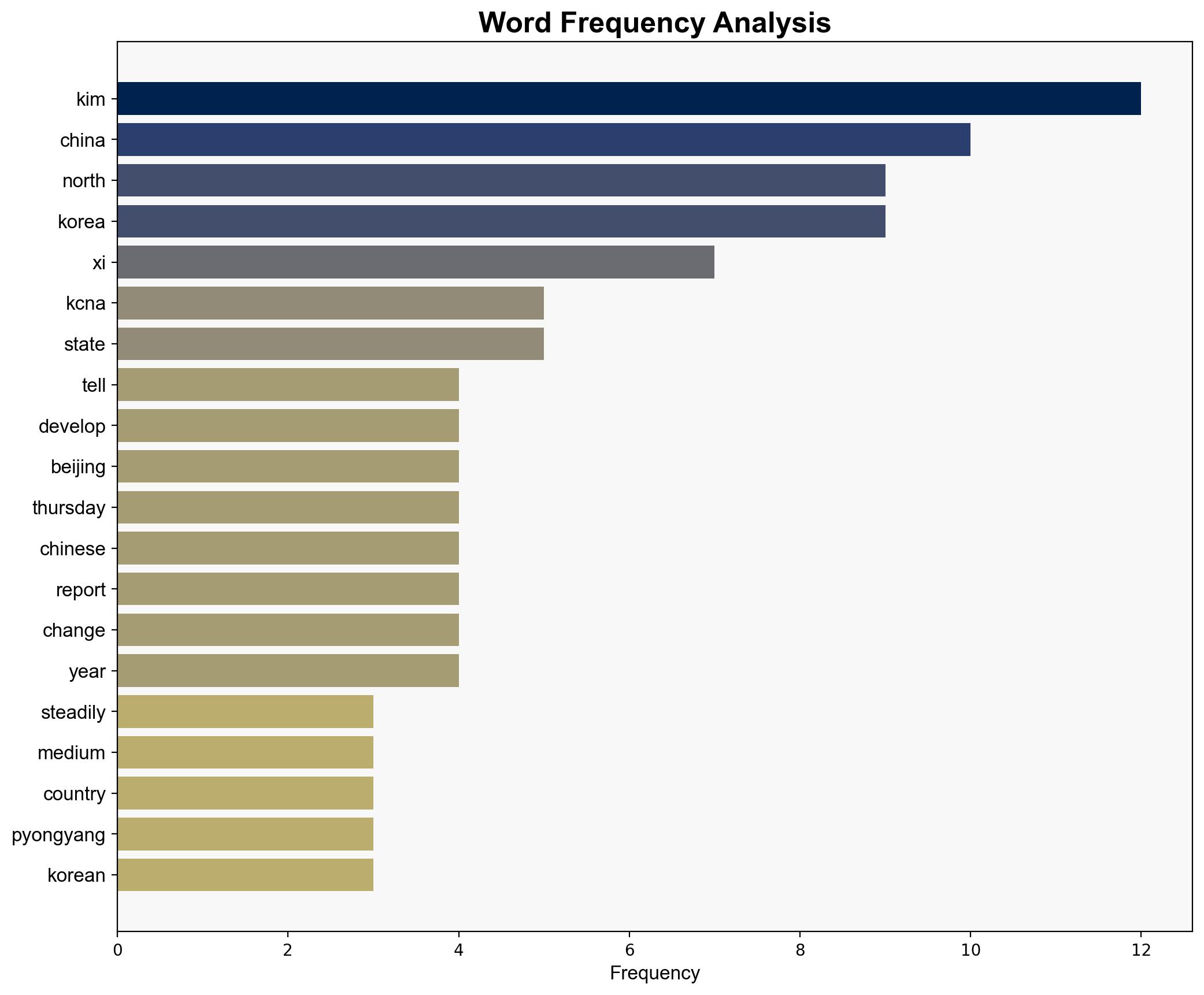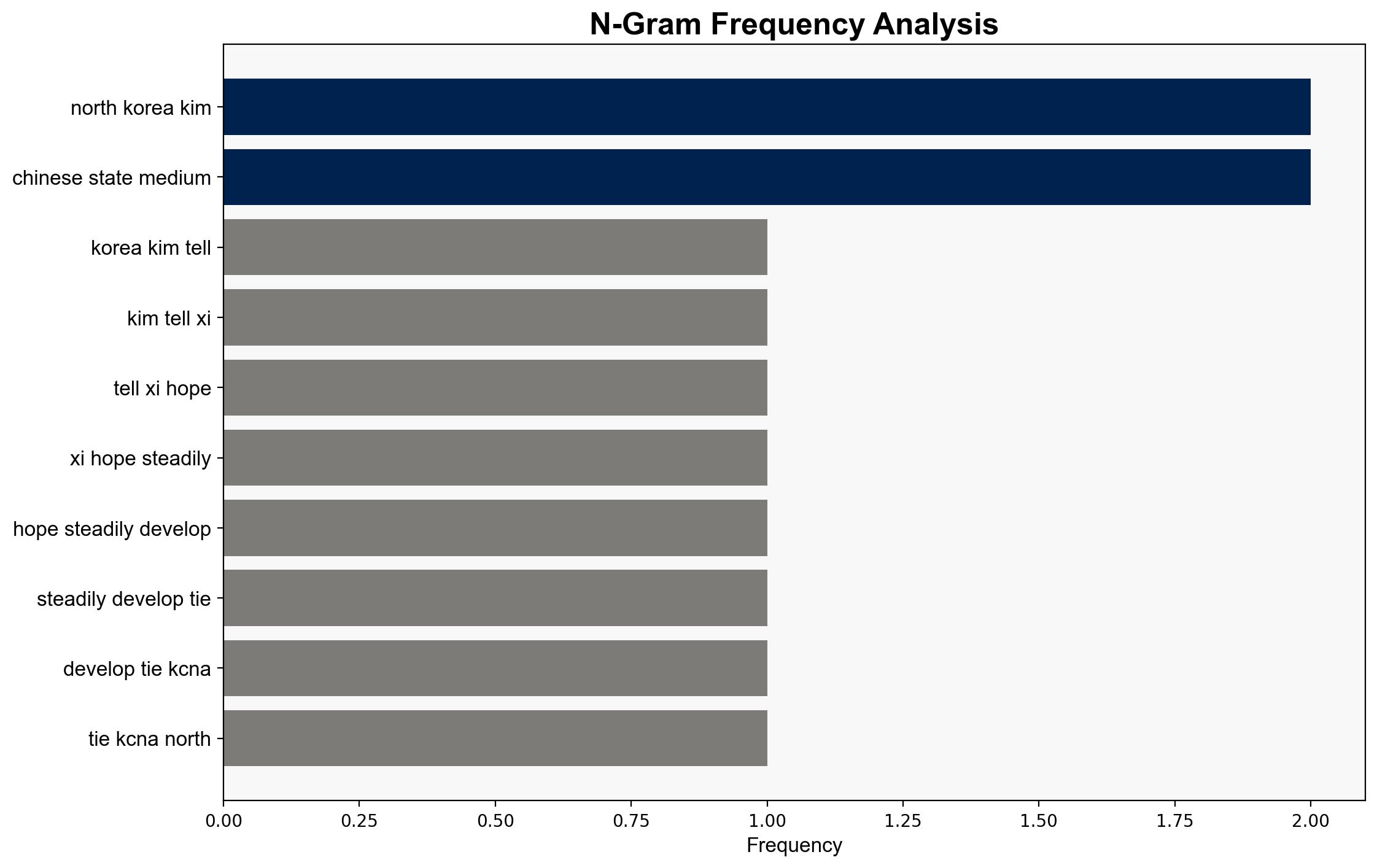North Korea’s Kim Tells Xi Hopes To ‘Steadily Develop’ Ties KCNA – International Business Times
Published on: 2025-09-05
Intelligence Report: North Korea’s Kim Tells Xi Hopes To ‘Steadily Develop’ Ties KCNA – International Business Times
1. BLUF (Bottom Line Up Front)
The most supported hypothesis is that North Korea seeks to strengthen its alliance with China to counterbalance its growing isolation and economic challenges. This is supported by the historical context of their relationship and recent geopolitical shifts. Confidence level: Moderate. Recommended action: Monitor developments in the China-North Korea relationship for shifts in regional power dynamics and potential impacts on international sanctions and security policies.
2. Competing Hypotheses
1. **Hypothesis A**: North Korea aims to reinforce its strategic alliance with China to counteract international isolation and economic sanctions. This hypothesis is supported by Kim Jong Un’s emphasis on the unchanging nature of the relationship despite global changes and the historical context of their alliance.
2. **Hypothesis B**: North Korea’s engagement with China is a tactical maneuver to gain leverage in its negotiations with other international actors, including the United States and Russia. This hypothesis considers the recent strengthening of ties with Russia and the potential for North Korea to use its relationship with China as a bargaining chip.
Using ACH 2.0, Hypothesis A is better supported due to consistent historical patterns and the current geopolitical context, where North Korea benefits from China’s economic and diplomatic backing.
3. Key Assumptions and Red Flags
– **Assumptions**: The assumption that China will continue to support North Korea unconditionally may overlook potential shifts in China’s strategic priorities.
– **Red Flags**: The lack of detailed information on the specific outcomes of the meetings between Kim and Xi raises questions about the depth and sincerity of the commitments made.
– **Blind Spots**: Potential internal pressures within North Korea or China that could influence their foreign policy decisions are not addressed in the report.
4. Implications and Strategic Risks
– Strengthening China-North Korea ties could embolden Pyongyang’s nuclear ambitions, complicating international diplomatic efforts.
– Increased coordination between North Korea, China, and Russia may lead to a realignment of regional power structures, challenging U.S. influence in the Asia-Pacific.
– Economic implications include potential circumvention of sanctions, impacting global trade dynamics.
5. Recommendations and Outlook
- Enhance intelligence gathering on North Korea-China interactions to anticipate shifts in regional alliances.
- Engage with regional allies to develop a coordinated response to potential escalations.
- Scenario Projections:
- Best: Diplomatic engagement leads to de-escalation and renewed talks on denuclearization.
- Worst: Strengthened alliances lead to increased military provocations and regional instability.
- Most Likely: Gradual strengthening of ties with incremental impacts on regional geopolitics.
6. Key Individuals and Entities
– Kim Jong Un
– Xi Jinping
– Vladimir Putin
7. Thematic Tags
national security threats, regional focus, geopolitical strategy, international relations





